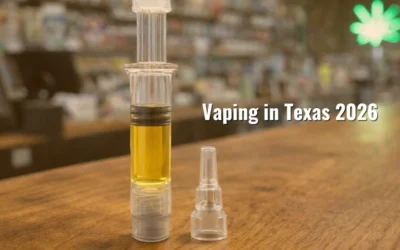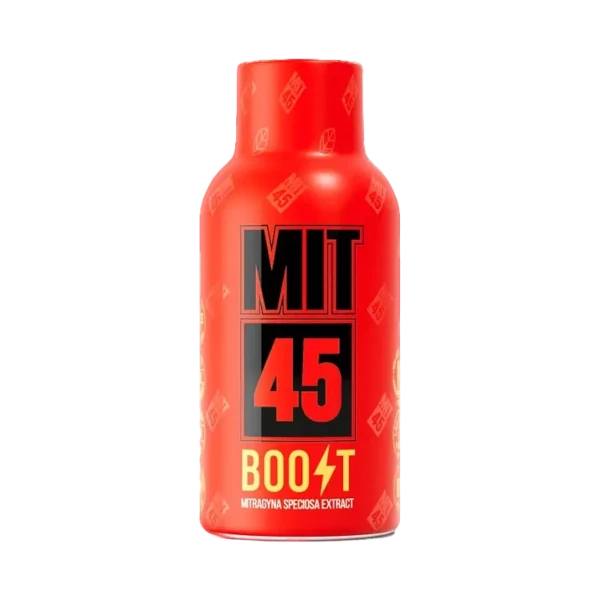The landscape of cannabis legality is complex and ever-changing, particularly when it comes to compounds like THCA. As interest in cannabis derivatives grows, so does the curiosity about their legal status. This article explores the legality of THCA products in the United States, providing clarity on providing clarity on where they stand under various laws. We will delve into federal and state regulations and the potential future of THCA legislation to help you discover, “Is THCA legal?”
What Is THCA, and Why is This?
THCA, or tetrahydrocannabinolic acid, is one of the many cannabinoids found in raw and live cannabis plants. But why is THCA legal? Unlike its well-known counterpart, THC (tetrahydrocannabinol), THCA is non-psychoactive, meaning it does not produce the “delight” typically associated with cannabis use. This is because THCA needs to undergo a process called decarboxylation, which involves heating, to convert into THC, the psychoactive component.
THCA is typically found in fresh, undried cannabis plants and begins to convert to THC as the plant dries or is exposed to heat. This transformation is a key step in the preparation of cannabis for recreational and medicinal use. Despite its non-psychoactive nature, THCA has garnered interest in both medical and wellness circles due to its potential benefits.
THCA in the United States: Is THCA Federally Legal?
The legality of THCA in the United States is nuanced. Is THCA federally legal? At the federal level, THCA is not explicitly listed as a controlled substance under the Controlled Substances Act. However, the legal status can vary significantly from state to state. Some states have legalized cannabis in various forms, including THCA, for medical or recreational use. Others have strict prohibitions against all cannabis-derived products.
Factors Influencing THCA Legality in the U.S.:
- State-specific cannabis laws
- Federal regulations
- Presence of THCA in hemp products
- Medical vs. recreational use distinctions
- Evolving legal interpretations
Federal vs. State Laws: Where is THCA Legal?
Federal law often conflicts with state laws regarding cannabis products, including THCA. While some states have embraced cannabis reform, allowing the use and sale of products containing THCA, federal law still classifies cannabis and its derivatives as illegal. This discrepancy creates a patchwork of regulations that can make it confusing for consumers to know where THCA is legal.
Comparison of Federal and State Laws:
| Law Level | Legal Status of THCA | Key Points |
| Federal | Generally Illegal | Controlled Substances Act covers cannabis |
| State | Varies by State | Some states allow medical/recreational use |
Examples of State Laws:
- California: Legal for medical and recreational use.
- Texas: Illegal except for low-THC medical use.
- Colorado: Legal for medical and recreational use.
- Idaho: Illegal in all forms.
Is THCA Legal in Texas?
In Texas, the legal status of THCA is restrictive. Texas has stringent laws concerning cannabis and its derivatives. In which concentration is THCA flower legal in Texas? The state permits the use of low-THC cannabis for medical purposes under the Compassionate Use Program, which limits THC content to 0.5% or less. However, this does not explicitly cover THCA, and products containing THCA that could potentially convert to THC may be considered illegal under state law.
Key Points about Texas Laws:
- Low-THC Medical Use: Allowed under the Compassionate Use Program.
- Recreational Use: Completely prohibited.
- THCA Products: Is THCA legal in Texas? Legal ambiguity, with potential risks due to THC conversion.
Is THCA Legal in All 50 States?
The legality of THCA varies widely across the United States, with some states allowing its use under medical or recreational cannabis laws while others strictly prohibit it. This disparity can create confusion for consumers and businesses operating in different jurisdictions.
Is THCA legal in all 50 states? As of now, the following states have more permissive laws regarding the use and sale of hemp-derived cannabinoids, including THCA:
- California: Allows the use and sale of THCA under its cannabis regulations.
- Colorado: Permits THCA products under its established cannabis laws.
- Oregon: Legal for use and sale in line with the state’s cannabis legislation.
- Washington: THCA is allowed under state cannabis laws.
- Nevada: Permits THCA products as part of its cannabis regulations.
- Michigan: THCA is legal under the state’s cannabis framework.
- Alaska: Allows for the use and sale of THCA products.
- Massachusetts: Permits THCA under its cannabis laws.
- Vermont: Legal under state cannabis regulations.
- Maine: THCA is allowed under the state’s cannabis legislation.
- Illinois: Permits the use and sale of THCA products.
- New York: THCA is legal under the state’s cannabis laws.
- New Jersey: Allows THCA products under state regulations.
- Connecticut: Permits the use and sale of THCA.
- Rhode Island: Legal under the state’s cannabis framework.
- New Mexico: THCA is allowed under state cannabis regulations.
- Arizona: Permits the use and sale of THCA products.
- Montana: Legal under state cannabis laws.
- Maryland: Allows THCA products under state regulations.
It’s important to note that while these states have more permissive laws regarding THCA, regulations can still vary, and it’s crucial to stay informed about specific local laws and any changes that may occur. Always ensure compliance with both state and local regulations when purchasing or selling THCA products.
States Where THCA Is Legal
Several states have legalized THCA, either explicitly or as part of broader cannabis legalization efforts. These states typically allow THCA in both medical and recreational contexts, although regulations may vary.
States Where THCA Is Legal:
- California
- Colorado
- Oregon
- Washington
- Nevada
| State | Legal Status |
| California | Medical and Recreational |
| Colorado | Medical and Recreational |
| Oregon | Medical and Recreational |
| Washington | Medical and Recreational |
| Nevada | Medical and Recreational |
THCA and the 2018 Farm Bill: Why is THCA Legal?
The 2018 Farm Bill significantly impacted the cannabis industry in the United States by legalizing hemp and its derivatives, provided they contain less than 0.3% THC. This legislation has created a legal gray area for THCA, as hemp plants can produce THCA. However, once THCA is decarboxylated into THC, it falls under the purview of federal prohibition.
Implications of the 2018 Farm Bill for THCA:
- Legalization of hemp-derived products
- Increased research opportunities
- Confusion about why THCA is legal due to potential THC conversion
- Expansion of the hemp market
- Potential for legal challenges and changes
Legal Risks for Consumers: Is THCA Legal to Ship?
Consumers interested in THCA should be aware of the legal risks and considerations. While some states allow the purchase and use of THCA products, federal law still poses risks. Traveling with THCA across state lines can lead to legal complications, and there are potential risks associated with purchasing THCA products online, particularly from states where it is not legal.
Legal Considerations for THCA Consumers:
- State Laws: Know your local laws regarding THCA.
- Federal Risks: Understand that federal law may override state laws.
- Travel: Is THCA legal to ship? It depends on states, so avoid transporting THCA across state lines.
- Purchasing: Buy from reputable sources in states where THCA is legal.
- Labeling: Check product labels for accurate THC content.
Is THCA Legal, and What are Future Trends In THCA Legislation?
The future of THCA legislation is uncertain but promising. As research into cannabis and its compounds continues, there is potential for broader acceptance and legalization. Changes in federal law, such as rescheduling or descheduling cannabis, could significantly impact the legal status of THCA. Advocacy and public opinion also play crucial roles in shaping the future of THCA legality.
Potential Future Trends:
- Increased research and clinical trials
- Shifts in public opinion towards cannabis legalization
- Changes in the federal classification of cannabis
- Expansion of medical cannabis programs
- Global trends influencing U.S. policies
Is THCA Legal In Texas? Decide With Delta 8 Austin!
The legal status of THCA in Texas is complex and varies widely depending on the level of THCA content. While some states have embraced its use, federal laws and international regulations can present challenges. Staying informed about current laws and potential changes is essential for consumers and businesses interested in THCA. As the legal landscape evolves, understanding the nuances of THCA’s legality will be crucial for safe and compliant use.
At Delta 8 THC Austin, we are committed to providing high-quality products while ensuring compliance with all relevant laws. Our knowledgeable team stays updated on the latest regulations to explain how THCA flower is legal. Whether you’re new to THCA or an experienced user, Delta 8 THC Austin is here to guide you through the complexities and help you make informed choices.
Visit us in Austin, TX, to learn how THCA is legal in Texas and buy our quality products!




